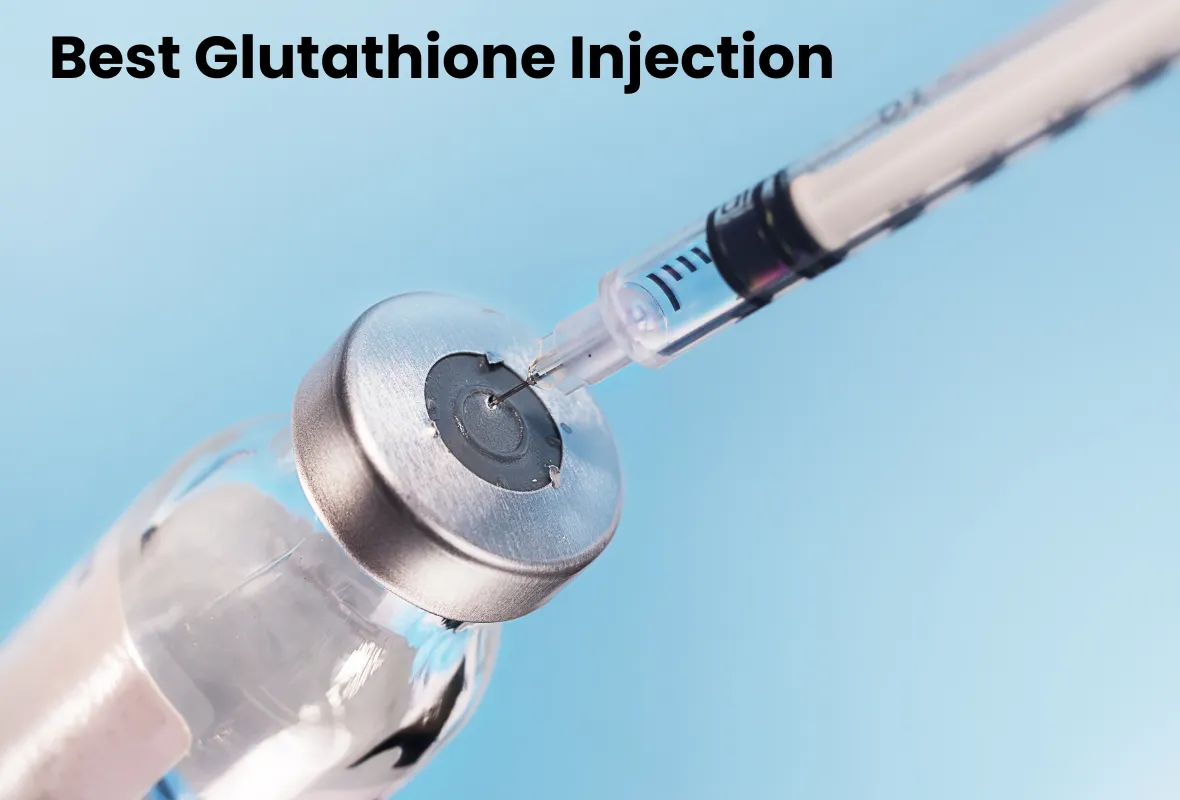What Are Glutathione Skin Whitening Injections?
Glutathione skin whitening injections are a cosmetic procedure that involves administering glutathione, a powerful antioxidant, directly into the bloodstream. This method is intended to increase the levels of glutathione in the body, which is believed by some to offer various health benefits, including skin whitening. The injections are often sought after by individuals looking to lighten their skin tone, reduce the appearance of dark spots and hyperpigmentation, and achieve a brighter, more even complexion. However, it’s crucial to understand the science behind these injections, the potential risks, and the expected outcomes before considering this treatment option. Before making any decisions, it is very important to consult with a medical professional.
How Do Glutathione Injections Work?
Glutathione injections function by boosting the body’s glutathione levels. Glutathione is a tripeptide composed of three amino acids — cysteine, glutamic acid, and glycine — and it is a naturally occurring substance in the body. The primary mechanism behind its potential skin-whitening effects involves its impact on melanin production. Melanin is the pigment responsible for skin color, and glutathione inhibits tyrosinase, an enzyme that plays a key role in melanin synthesis. By reducing melanin production, glutathione may lead to a lighter skin tone. Moreover, glutathione acts as a potent antioxidant, neutralizing free radicals that can damage skin cells and contribute to hyperpigmentation. This dual action, coupled with its detoxification properties, makes it a popular choice, but it is critical to approach this with caution.
The Science Behind Skin Whitening
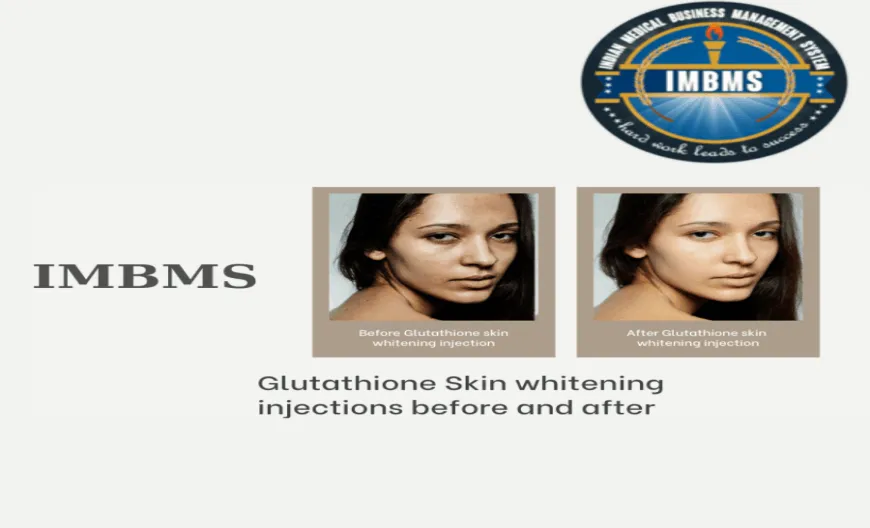
The science of skin whitening centers around melanin, the pigment that determines skin color. Melanin production is influenced by several factors, including genetics, sun exposure, and hormonal changes. Glutathione affects melanin synthesis by inhibiting tyrosinase. This enzyme is essential for converting tyrosine into melanin. By blocking tyrosinase, glutathione reduces the amount of melanin produced, potentially resulting in lighter skin. Additionally, glutathione’s antioxidant properties help protect skin cells from damage. This can indirectly contribute to a brighter complexion by reducing oxidative stress. As research continues, scientists are gaining a better understanding of these processes and the effects of glutathione on the skin.
Glutathione’s Role in Melanin Production
Glutathione plays a pivotal role in melanin production through its interaction with tyrosinase. By inhibiting this enzyme, glutathione reduces the conversion of tyrosine to melanin. This can result in a decrease in melanin synthesis and, consequently, a lighter skin tone. The effectiveness of glutathione in skin whitening can vary depending on individual factors such as skin type, dosage, and overall health. It is important to note that skin whitening is a complex process, and results may not be immediate or guaranteed. Always consult a healthcare professional for realistic expectations and to discuss potential side effects.
Fact 1 Enhanced Skin Brightening
One of the primary benefits of glutathione injections is the potential for enhanced skin brightening. Many users report a noticeable improvement in skin radiance and a reduction in dullness. This effect is largely attributed to glutathione’s antioxidant properties and its role in melanin production. By neutralizing free radicals and reducing melanin, glutathione can contribute to a more luminous complexion. However, it is important to understand that individual results may vary. Factors such as skin type, overall health, and the specific formulation of the glutathione injection can influence the outcome. Consistency in treatment and adherence to professional advice is essential to maximize results and minimize potential risks.
How Glutathione Aids in a Radiant Complexion
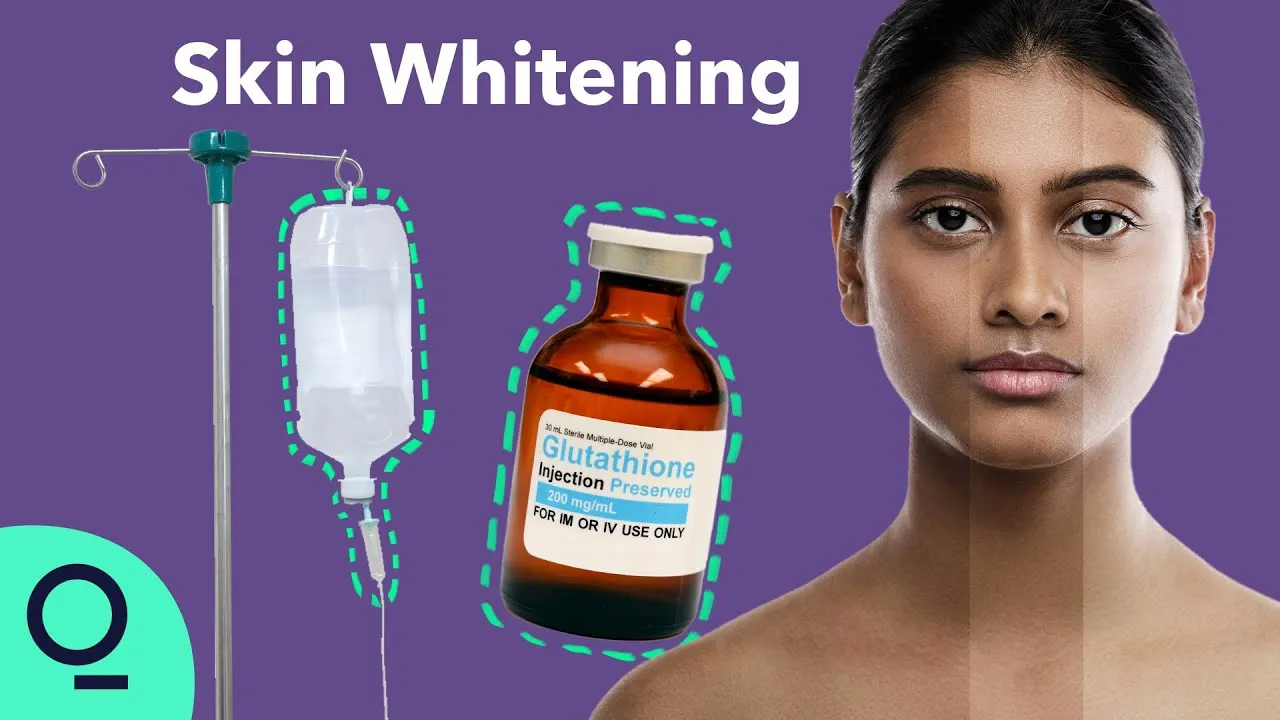
Glutathione contributes to a radiant complexion through multiple mechanisms. Its antioxidant properties protect the skin from oxidative stress, which can cause dullness and premature aging. By fighting free radicals, glutathione helps maintain skin cell health and promotes a brighter appearance. Furthermore, by influencing melanin production, it can reduce hyperpigmentation, such as dark spots and uneven skin tone. This combination of antioxidant and skin-lightening effects can lead to a more radiant and even complexion. Regular use of glutathione, as part of a comprehensive skincare routine, can help maintain and enhance the skin’s natural glow.
Fact 2 Powerful Antioxidant Properties
Glutathione is a potent antioxidant that plays a crucial role in protecting the body’s cells from damage caused by free radicals. Free radicals are unstable molecules that can contribute to premature aging, inflammation, and various health issues. By neutralizing these harmful molecules, glutathione helps to maintain overall health and improve skin appearance. This antioxidant effect not only benefits the skin but also supports the immune system, enhances detoxification processes, and promotes cellular repair. Regular intake or administration of glutathione can thus lead to healthier skin, a stronger immune response, and a greater capacity to combat environmental stressors. Many people opt for this, but it is important to discuss it with medical professionals.
Combating Free Radicals for Healthier Skin
The ability of glutathione to combat free radicals is a key factor in its skin benefits. Free radicals are generated through environmental factors like UV exposure, pollution, and internal processes. These unstable molecules can damage skin cells, leading to wrinkles, fine lines, and uneven skin tone. Glutathione neutralizes free radicals, preventing this damage and protecting skin cells from oxidative stress. By reducing oxidative stress, glutathione helps maintain skin health, promoting a more youthful and radiant complexion. Incorporating glutathione into a skincare regimen is a great way to combat the harmful effects of free radicals and support overall skin health. However, consult a doctor.
Fact 3 Potential Skin Lightening

One of the most sought-after effects of glutathione injections is potential skin lightening. This is due to its impact on melanin production. By inhibiting the enzyme tyrosinase, glutathione reduces the amount of melanin produced, which can lead to a lighter skin tone. The results of skin lightening can vary depending on the individual, their skin type, and the concentration of glutathione used. Some individuals may notice a subtle change in their complexion, while others might experience more significant lightening. The effect is also influenced by other factors like sun exposure and overall health. It’s important to consult a medical professional and have realistic expectations.
The Impact of Glutathione on Melanin
Glutathione’s impact on melanin production is central to its skin-lightening effects. By inhibiting the tyrosinase enzyme, which is essential for melanin synthesis, glutathione helps decrease melanin production. This reduction can result in a lighter skin tone and a reduction in the appearance of dark spots and hyperpigmentation. The extent of the impact depends on various factors, including the dosage of glutathione, the frequency of injections, and individual skin characteristics. It is important to remember that skin lightening is a gradual process, and consistency in treatment, along with proper sun protection, is crucial for achieving desired results. Talk to your doctor about it.
Fact 4 Detoxification Benefits
Glutathione is a key player in the body’s detoxification processes. It aids in removing harmful substances, such as heavy metals and toxins, from the body. This detoxification action contributes to overall health and can indirectly benefit skin appearance. By supporting the liver and other organs in their detoxification functions, glutathione helps maintain a healthy internal environment. This, in turn, can lead to clearer, healthier skin, as the body is better equipped to eliminate toxins that might otherwise contribute to skin issues. The detoxification benefits of glutathione make it a valuable component of comprehensive health and wellness plans.
Glutathione and Overall Health
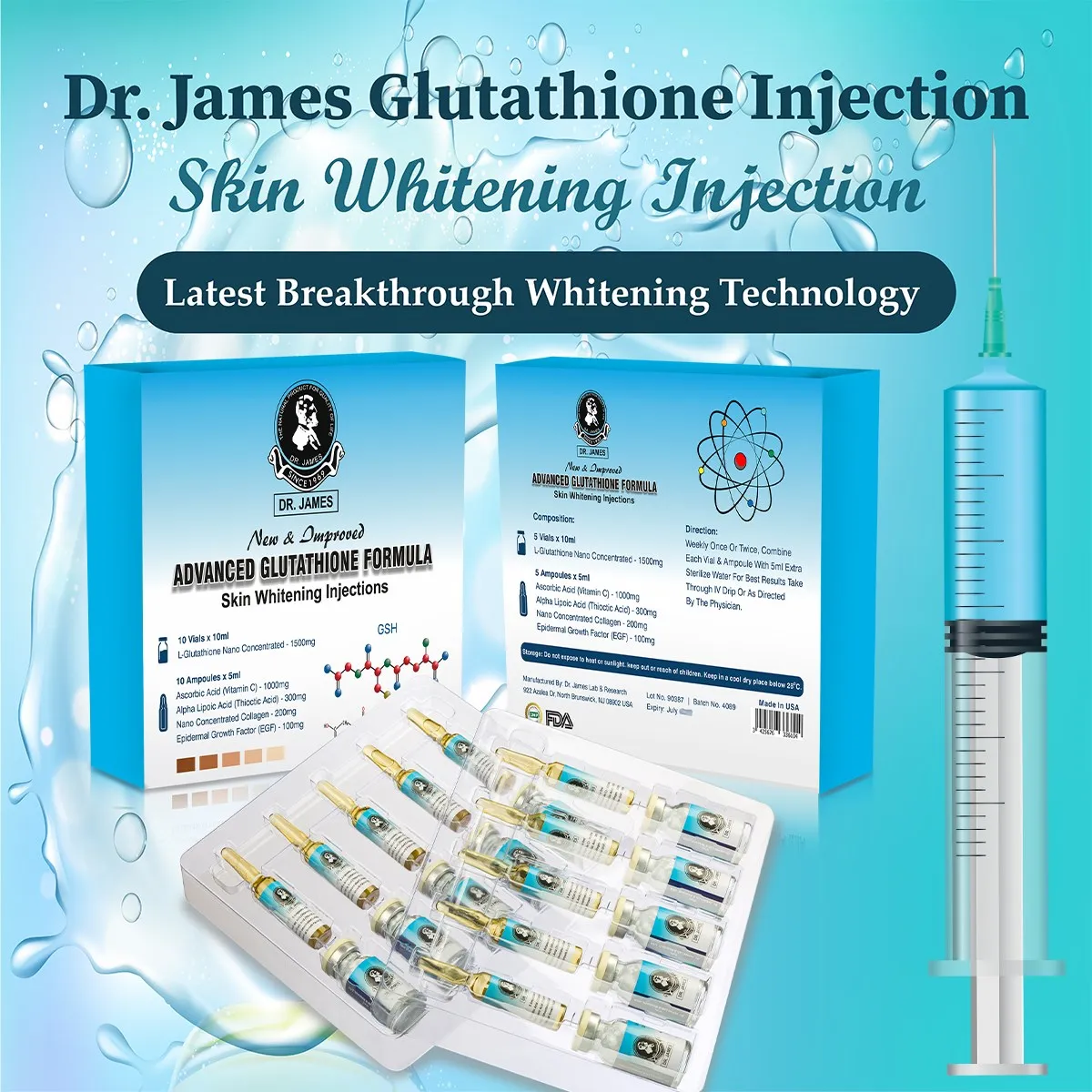
The benefits of glutathione extend beyond skin health, impacting overall well-being. Glutathione supports various bodily functions, including the immune system and cellular repair. It acts as a powerful antioxidant, protecting cells from damage and promoting longevity. The detoxification properties of glutathione help remove harmful substances, enhancing overall health and reducing the burden on vital organs. Regular supplementation or administration of glutathione can contribute to improved energy levels, reduced inflammation, and a strengthened immune response. These health benefits can indirectly support skin health, leading to a more vibrant complexion and overall vitality. Consult your doctor before considering this.
Fact 5 Improved Skin Health
Beyond skin whitening, glutathione injections can contribute to improved skin health in several ways. Its antioxidant properties help protect skin cells from damage, while its ability to reduce melanin production can lead to a more even skin tone. Glutathione also supports the body’s natural detoxification processes, helping to eliminate toxins that might contribute to skin issues. Some individuals report improvements in skin elasticity and a reduction in the appearance of fine lines and wrinkles. Overall, the combined effects of glutathione contribute to healthier, more radiant skin. As with any treatment, results may vary, and consistency is key to achieving the best outcomes. Consult a doctor for any concerns.
Glutathione’s Influence on Skin Elasticity
Glutathione plays a role in skin elasticity, which refers to the skin’s ability to stretch and snap back to its original shape. By reducing oxidative stress and protecting collagen and elastin fibers, glutathione can help maintain skin elasticity. Collagen and elastin are essential proteins that provide structure and firmness to the skin. By supporting these proteins, glutathione can contribute to a more youthful appearance and help reduce the appearance of fine lines and wrinkles. Improved skin elasticity can lead to a smoother, firmer complexion, making glutathione a valuable component of a comprehensive skincare regimen. However, remember to seek professional advice.
Risks and Side Effects of Glutathione Injections
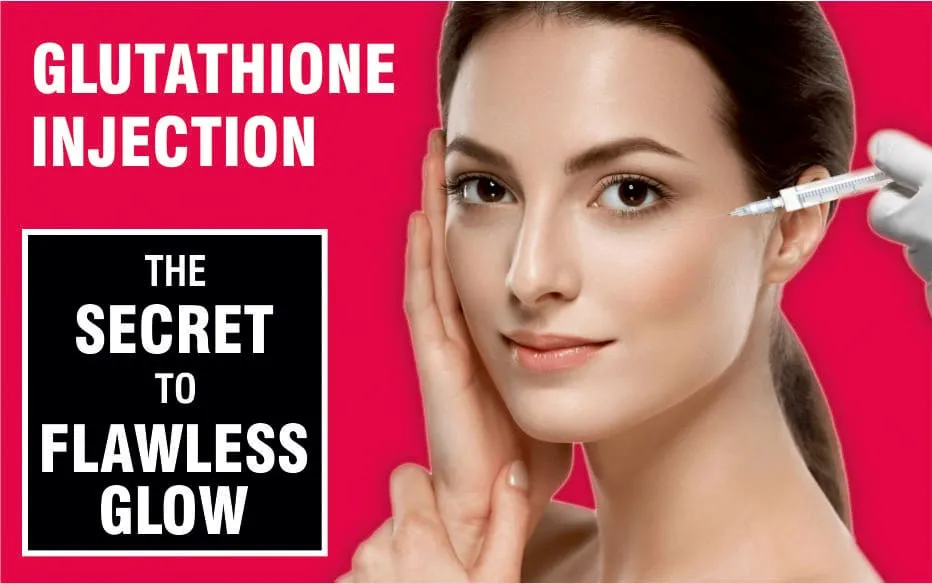
While glutathione injections are generally considered safe, there are potential risks and side effects to be aware of. Common side effects may include injection site reactions, such as pain, redness, and swelling. Some individuals may experience allergic reactions, though this is rare. More serious side effects are possible, including infections if the injections are not administered under sterile conditions. There is also a risk of liver and kidney damage with long-term use. Always consult with a healthcare professional before starting glutathione injections. They can assess your individual risk factors, discuss potential side effects, and ensure that the procedure is performed safely. This will help you make a more informed decision.
Who Should Avoid Glutathione Injections?
Certain individuals should avoid glutathione injections due to potential risks. Those with known allergies to glutathione or any of its components should not undergo this treatment. People with certain medical conditions, such as kidney disease or liver disease, should consult with their doctor before considering glutathione injections, as the injections could potentially worsen the condition. Pregnant or breastfeeding women should also avoid this treatment, as the effects on the developing fetus or nursing infant are not fully understood. Always consult a healthcare provider for a thorough evaluation to determine if glutathione injections are appropriate for your specific health profile.
Alternatives to Glutathione Injections
If glutathione injections are not suitable or desired, several alternatives can support skin health and offer some similar benefits. Oral glutathione supplements are available, although their bioavailability may be lower than that of injections. Topical skincare products containing antioxidants, such as vitamin C and vitamin E, can help protect the skin from damage. Other treatments, like chemical peels and laser therapies, can address hyperpigmentation and improve skin tone. A healthy lifestyle, including a balanced diet rich in fruits and vegetables, regular exercise, and adequate sun protection, can also contribute to overall skin health. Consulting with a dermatologist or healthcare provider will help you find the best options.
